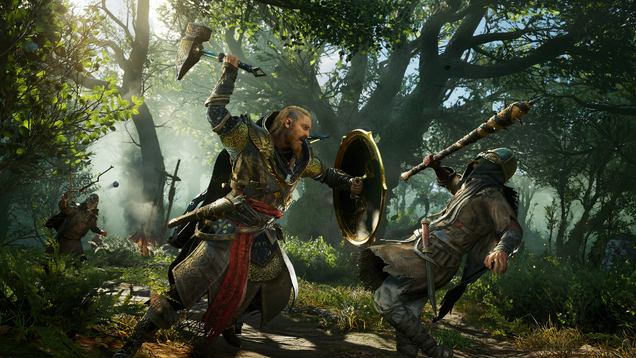
It's for the good of us all, honest.
One of the big myths about working in gaming is that we spend all our days playing games non-stop. Of course, that’ll be the case if you’re reviewing a new release, but otherwise we spend a lot of our time looking at blinking cursors, spreadsheets, and all that terribly interesting work-related stuff.
Good news though—several studies say that gaming improves skills needed in the workplace, so we can all petition our bosses to allocate some time for a bit of R&R.
The findings range from tabletop gaming encouraging creativity, empathy and teamwork, to video games building cognitive skills and contributing to stress management (via Harvard Business Review). Those all sound like things us gamers already knew, but it’s nice to have some science to back it up, isn’t it?
For tabletop gaming, a study based on 25 individuals playing eight one-hour D&D sessions found that participants “demonstrated significant decreases in depression, stress, and anxiety and significant increases in self-esteem and self-efficacy over the study period.”
That’s a pretty small sample size, admittedly, but how about this one published in the Frontiers in Psychology journal, which found that 399 D&D players exhibited significantly higher extraversion, openness to experience and emotional stability compared to 402 non-players?
These studies and those like them have led some to posit that gaming in the workplace may actually be highly beneficial—like Dr Jesse Olsen of the University of Melbourne, who argues that the teamwork, flexibility and creativity found in a D&D session has direct parallels with the skills needed in an effective workplace team.
It’s not just tabletop either—our beloved vidya games get a look in on the action, too. In a review of 35 studies assessing the effect of video games on cognitive and emotional training, researchers found that, overall, “findings give evidences of benefits of video games training on cognitive and emotional skills in relation to the healthy adult population, especially on young adults.”
That’s not just purely educational games or brain-training apps, either. The review goes on to conclude that “efficacy has been demonstrated not only for non-commercial video games or commercial brain-training programs, but for commercial video games as well.”
(Image credit: Future)
Best gaming PC: The top pre-built machines.
Best gaming laptop: Great devices for mobile gaming.
So, better teamwork, better cognitive skills, more empathy, and significant increases in self-esteem? Those all sound like the building blocks of a happy, healthy, and productive workforce to me. The Harvard Business Review suggests that managers ask potential hires about their gaming experience, normalise gaming conversations in the workplace, and lead by example by playing a game.
Sounds good to me. Now, if I can just convince my higher-ups to let me get back to building my abomination of a facility in Satisfactory—purely to boost my overall well-being and my contributions to the team, of course—that’d be just grand.
No? Ah, better get working on the next article then.





